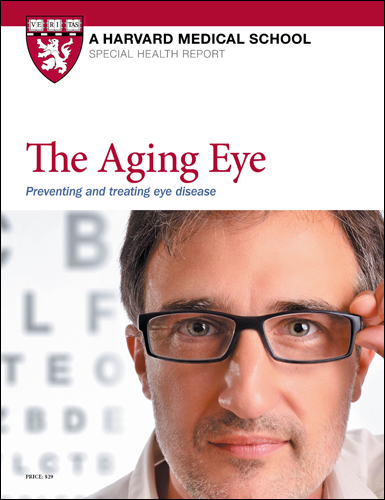Research upholds use of supplements to slow macular degeneration
News briefs
- Reviewed by Anthony L. Komaroff, MD, Editor in Chief, Harvard Health Letter; Editorial Advisory Board Member, Harvard Health Publishing

Leaving beta carotene out of eye supplements and adding lutein and zeaxanthin still appears to be the safest and most effective formula for slowing the progression of age-related macular degeneration (AMD), the most common cause of blindness after age 50. That's according to a follow-up study published online June 2, 2022, by JAMA Ophthalmology. Researchers first studied supplements to slow AMD in the Age-Related Eye Disease Study (AREDS), published in 2001. That formula included vitamins C and E, copper, zinc, and beta carotene. It was associated with a 25% reduced risk of AMD progression. However, other studies later linked beta carotene supplements to lung cancer in smokers. So a new AREDS trial was launched in 2006. About 4,000 people were randomly assigned to take either the original AREDS supplements or a new formula (AREDS2) that included lutein and zeaxanthin instead of beta carotene. After five years, the original formula was found to correspond to a nearly doubled risk for lung cancer in former smokers. In contrast, the new formula without beta carotene did not increase lung cancer risk, and it still reduced the risk of AMD. The AREDS2 participants were followed for another five years. After 10 years, the result remained the same: people who used the new formula still had a lower risk of AMD progression and no increased risk of lung cancer.
Image: © Take A Pix Media/Getty Images
About the Author

Heidi Godman, Executive Editor, Harvard Health Letter
About the Reviewer

Anthony L. Komaroff, MD, Editor in Chief, Harvard Health Letter; Editorial Advisory Board Member, Harvard Health Publishing
Disclaimer:
As a service to our readers, Harvard Health Publishing provides access to our library of archived content. Please note the date of last review or update on all articles.
No content on this site, regardless of date, should ever be used as a substitute for direct medical advice from your doctor or other qualified clinician.
















